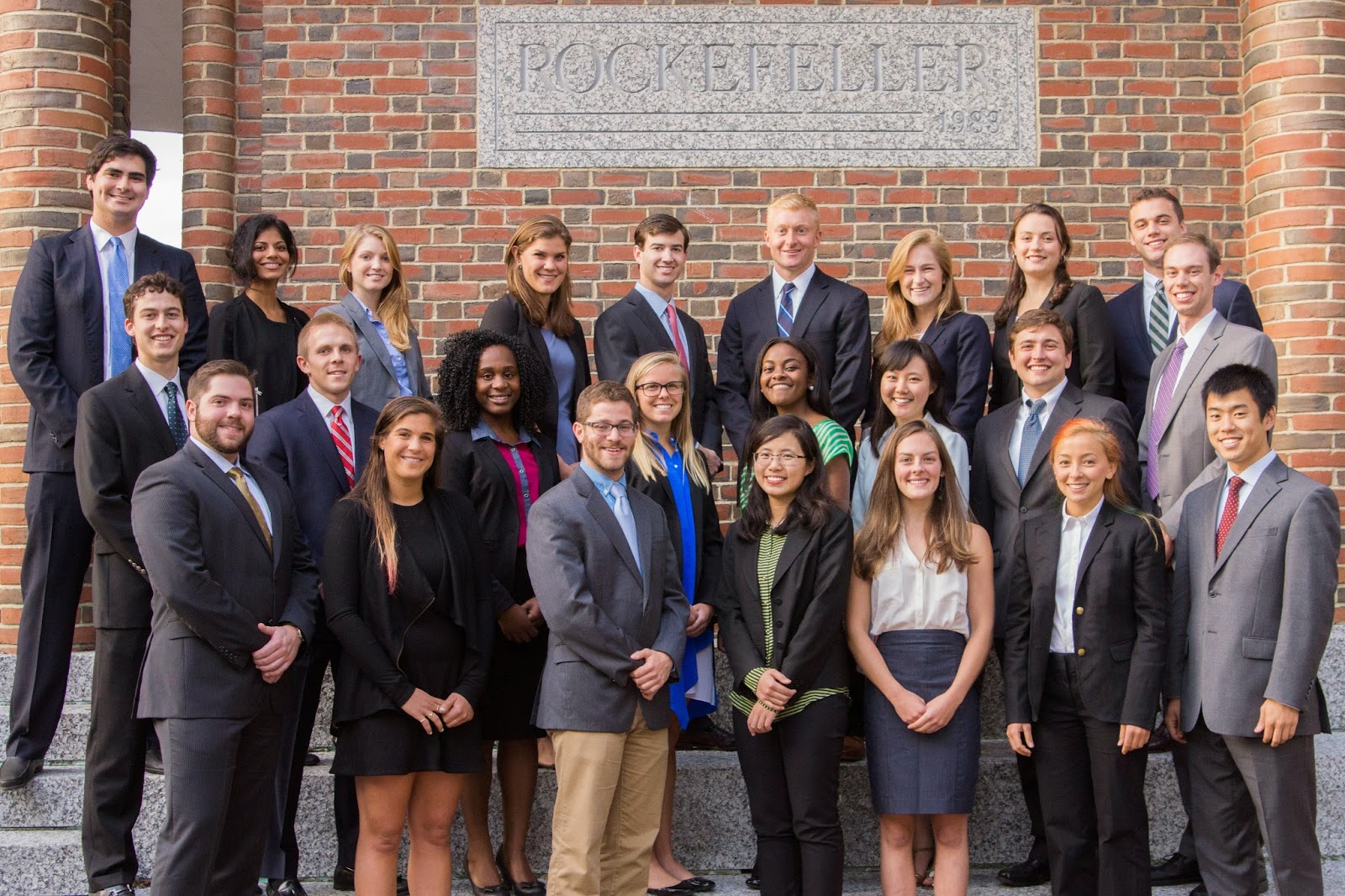- Public Policy
- Leadership
- Funding
- News & Events
- About the Center
Back to Top Nav
Back to Top Nav
Back to Top Nav
Back to Top Nav
This ongoing series explores sessions of the Rockefeller Leadership Fellows (RLF) program. RLF provides fellows with resources in leadership theories and practical skills. Selected their Junior Spring, these Seniors take part in the workshops, dinner discussions, and team-building exercises as they gain a better understanding of the qualities and responsibilities necessary for leaders and successful leadership styles.
Betsy Winslow ‘83, of Dartmouth's Tuck School of Business, conducted the Rockefeller Leadership Fellows’ third session this year, expertly linking leadership theory to the practical considerations of a leader giving feedback. She began by walking us through four theoretical lenses used to evaluate and improve leadership: personal excellence, situational and contingency theory, motivating and developing people, and achieving results. As we moved from theory to practice, we began to emphasize the latter two lenses.
 |
| The 2014-2015 Rockefeller Leadership Fellows, Photo by Thanh V. Nguyen |
-Written by John Howard '15, 2014-2015 Rockefeller Leadership Fellow
Betsy Winslow spent seven years prior to her work at Tuck as first an Assistant Director and then an Associate Director in the undergraduate admissions office at Dartmouth College, where she was responsible for hiring and training new admissions officers, organizing staff development activities, acting as a liaison for all alumni volunteers, and representing the admissions office on the Committee on Standards. Winslow completed her undergraduate work at Dartmouth College, graduating with a degree in English in 1983. She completed her Masters in Education and her Doctorate in Education at the Harvard Graduate School of Education in June of 2004 with a focus on Administration, Planning and Social Policy. Winslow holds a faculty appointment at the Tuck School as an Adjunct Assistant Professor of Business Administration and teaches a course called "Comparative Models of Leadership."